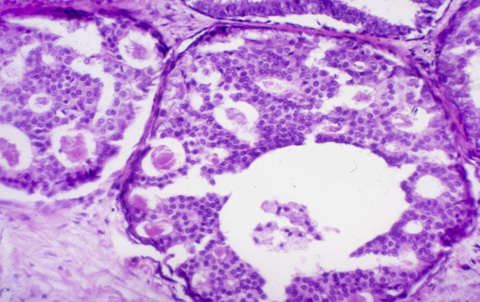547


Autor del resumen:Dra. Mª Dolors Sabadell
Autor de la publicación:Shi-Yi Wang, Haitao Chu, Tatyana Shamliyan, Hawre Jalal, Karen M. Kuntz, Robert L. Kane, Beth A. Virnig
Nombre de la publicación:J Natl Cancer Inst
Fecha de la publicación:02/04/2012
Background
Negative margins are associated with reduced risk of ipsilateral breast tumor recurrence (IBTR) for women with ductal carcinoma in situ (DCIS) treated with breast-conserving surgery (BCS). However, there is no consensus about the best minimum margin width.
Methods
We searched the PubMed database for studies of DCIS published in English between January 1970 and July 2010 and examined the relationship between IBTR and margin status after BCS for DCIS. Women with DCIS were stratified into two groups, BCS with or without radiotherapy. We used frequentist and Bayesian approaches to estimate the odds ratios (OR) of IBTR for groups with negative margins and positive margins. We further examined specific margin thresholds using mixed treatment comparisons and meta-regression techniques. All statistical tests were two-sided.
Results
We identified 21 studies published in 24 articles. A total of 1066 IBTR events occurred in 7564 patients, including BCS alone (565 IBTR events in 3098 patients) and BCS with radiotherapy (501 IBTR events in 4466 patients). Compared with positive margins, negative margins were associated with reduced risk of IBTR in patients with radiotherapy (OR = 0.46, 95% credible interval [CrI] = 0.35 to 0.59), and in patients without radiotherapy (OR = 0.34, 95% CrI = 0.24 to 0.47). Compared with patients with positive margins, the risk of IBTR for patients with negative margins was smaller (negative margin >0 mm, OR = 0.45, 95% CrI = 0.38 to 0.53; >2 mm, OR = 0.38, 95% CrI = 0.28 to 0.51; >5 mm, OR = 0.55, 95% CrI = 0.15 to 1.30; and >10 mm, OR = 0.17, 95% CrI = 0.12 to 0.24). Compared with a negative margin greater than 2 mm, a negative margin of at least 10 mm was associated with a lower risk of IBTR (OR = 0.46, 95% CrI = 0.29 to 0.69). We found a probability of .96 that a negative margin threshold greater than 10 mm is the best option compared with other margin thresholds.
Conclusions
Negative surgical margins should be obtained for DCIS patients after BCS regardless of radiotherapy. Within cosmetic constraint, surgeons should attempt to achieve negative margins as wide as possible in their first attempt. More studies are needed to understand whether margin thresholds greater than 10 mm are warranted.